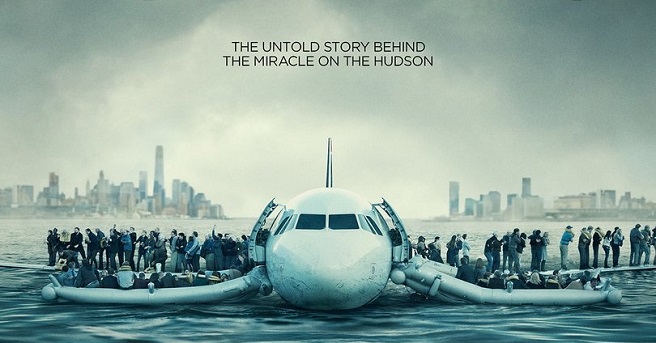“Everything is unprecedented until it happens for the first time.” – Sully (Tom Hanks)
Having lived in New York City my whole life, it’s kind of expected to see the unexpected. On any given day, I could have run into the likes of Robert DeNiro — whom I’ve encountered twice — see a guy dressed as Spider-Man on a unicycle or simply see a raging Times Square Elmo yell at a naïve tourist.
When I was 11 years old, I don’t think anything could have prepared me for seeing a passenger plane glide down into the Hudson River. I remember looking out of the window in my mom’s office near Columbus Circle and seeing a plane gliding down onto the river, which was inherently weird, even for New York standards. I’ll never forget the somber look on everyone’s faces.
There was no way the plane could have landed safely, yet surely enough, it did. Even then, I knew that a miracle like this one had to be made into a film in some form. The event itself had Hollywood written all over it.
I watched “Sully” with high expectations and wasn’t disappointed in the slightest. Tom Hanks’ characterization of Captain Sullenberger was outstanding and genuinely captured the sheer extent of his moral dilemma both during and following the water landing. It really showed me that Sully was an unmistakably humble guy who, as a result of this act of heroism, had to quickly adapt to the spotlight, similarly to how he adapted to flying a plane after being struck by Canadian Geese. If Hanks doesn’t win an Oscar for his performance, I will personally make sure that strongly worded letters go out to everyone named Oscar. Forget the Academy, we need to go to the source, lads.
In addition to Hanks’ performance, Aaron Eckhart’s portrayal of co-pilot Jeff Skiles was brilliant to say the least. If it wasn’t for Eckhart’s performance of the reassuring, grounded character that supported the perpetual moral instability Sully faces throughout the course of the film, the retelling of Flight 1549’s incredible story would not be as successful.
Of course, another key character in “Sully” was Sully’s wife, portrayed by Laura Linney. I got the sense that his wife acted into the humble side of Sully through how she reacted to the media attention in the wake of the incident. Linney played her character in a way that acknowledged that Sully was a broken man in the aftermath of his ill-fated flight, which only helped bolster the overall narrative.
Additionally, having Clint Eastwood as the director is a bonus. I love his directing in “Jersey Boys” because he really knew how to tell the story of The Four Seasons without becoming too uprooted from reality. “Sully” maintained the same sense of reality through its inclusion of Sully’s family life, flashbacks to his days flying fighter jets and prop planes, and showing his attempts at exuding normalcy after the landing. Eastwood deconstructed the crash, its buildup and the aftermath, all in an expertly-crafted nonlinear narrative that ultimately stood out to me because of its emphatic repetition of the nature of the Hudson landing.
I’m not one to delve into camera work, but Eastwood was particularly effective in conveying the tension both during and following the river landing. I’ll even admit, I was shaking because of how well the camera was angled for the landing scene. Overall, I thoroughly enjoyed the film and thought it was a first class act.


Leave a Reply